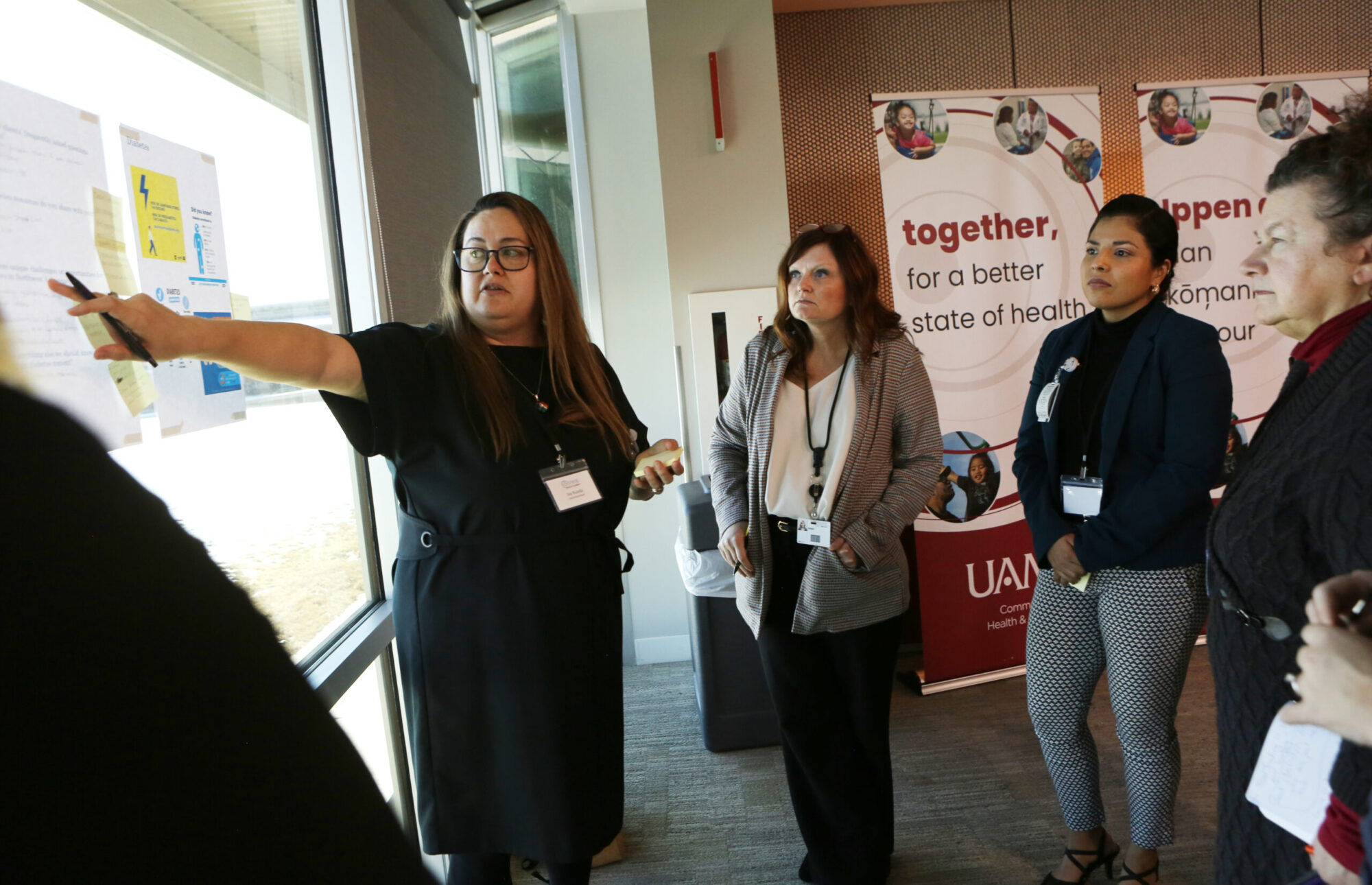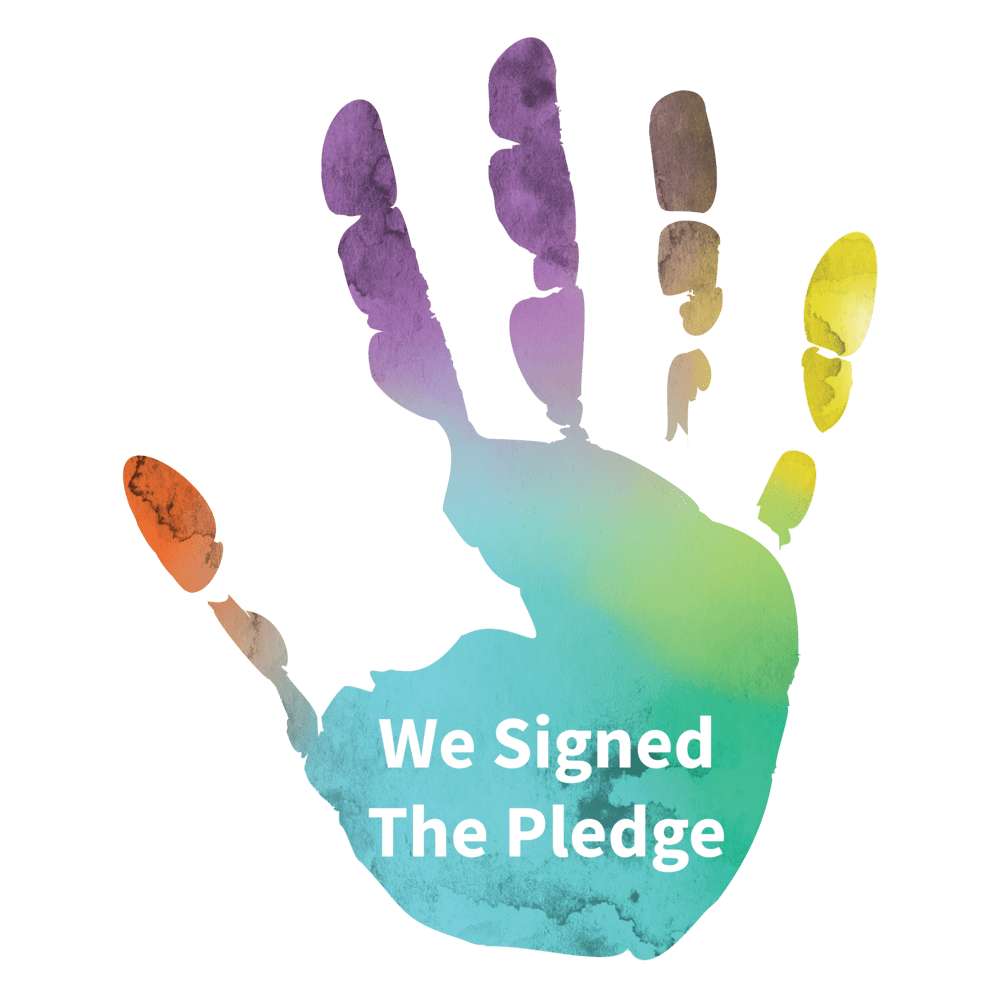Local police departments and the Fayetteville Public Library are teaming up with community health workers (CHWs) and social workers to ensure people in crisis get the help they need to live safely.
The collaboration could be unique in the country, according to Ryan Cork, executive director of the Northwest Arkansas Council’s Health Care Transformation Division, which has helped coordinate the effort. It has the potential to reduce crime and improve outcomes for all involved. And making it happen has taken years of training, a U.S. Department of Justice grant and partnerships with the Council and others.
The initiative centers around police calls for complex needs that require more than a law enforcement solution, such as mental health crises and homelessness.
In the past, the people involved in those calls might have been arrested and jailed simply because an officer was unprepared for their needs or had nowhere else to take them. An embedded social worker or community health worker, on the other hand, can instead connect people to vital assistance with housing, food or health care, turning lives around in the process.
“We’re finally seeing the benefits,” said Capt. Derek Wright with Springdale Police. “And the most vulnerable citizens will benefit the most.”
The Fayetteville Police Department led the charge about three years ago, partnering with the University of Arkansas School of Social Work to bring on interns who would pair with officers for crisis intervention calls. A year later, Fayetteville received $250,000 from the Department of Justice to make the social service positions full-time.
Springdale started a similar internship program as well, transitioning one of several social workers to full time earlier this year. Around half of the department’s officers bought into the program’s importance at the start, Wright said; a year later, support was essentially universal. The social workers have made around 1,000 referrals in a year and a half.
“Our demand is so high,” said Fayetteville Police Lt. Tim Shepard, noting that a small, consistent group of people are often involved in police calls but might encounter a different officer every time. “This unit, because that’s all they deal with, can develop those relationships and connect them with services way better than any patrol officer,” Shepard said.
Now the Council is working with the University of Arkansas for Medical Sciences and police in all four of the region’s biggest cities to continue expanding their social-service rosters and add community health workers to the mix. CHWs act as connectors, translators and advocates to help patients from all backgrounds receive the care they need.
“The CHW opens the door to a lot of patients who would not want anything to do with us otherwise,” said Tracey Sanchez, a longtime nurse and health care consultant who’s overseeing the health workers involved.
It’s all part of the Council’s broader push to better link the region’s various health care providers with each other and with the public, bolstering vaccinations, specialized surgical care and mental health care, among other domains. Combining social and health work with law enforcement obviously helps residents and police, Cork said but it also helps the region hang onto local health care providers who might otherwise leave in search of career opportunities.
“Dots weren’t connecting, so we were the connector,” he said.
The initiative also stretches beyond police departments, with Fayetteville’s library now hosting a community health worker three days a week. People of all stripes and in all sorts of circumstances visit the library every day, Executive Director David Johnson said, sometimes leading to disruptions and the intervention of law enforcement. So it was logical to play host to a community health worker who could help quickly and conveniently.
Larissa Navarrete, a CHW from UAMS, set up a desk in the library’s lobby in May. Two days in, she had worked with several visitors to renew their Medicaid coverage, refer them to other clinics and simply talk about their health, in English or Spanish, with a professional.
“The community can talk to someone that looks like them, that can speak to them in their language,” Navarrete said. “I want them to get full respect, full proper help. Those are the experiences that they deserve to have.”
























